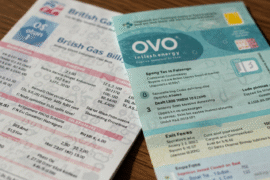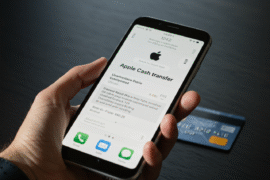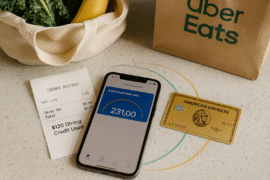This article may contain references to products or services from one or more of our advertisers or partners. We may receive compensation when you click on links to those products or services. Nonetheless, our opinions are our own.
The information presented in this article is accurate to the best of our knowledge at the time of publication. However, information is subject to change, and no guarantees are made about the continued accuracy or completeness of this content after its publication date.
- Key Highlights
- Introduction
- Understanding the 2025 Car Market Landscape
- The Rise of Digital Transactions
- Changes in Loan Conditions and Rates
- Preparing to Sell Your Car with a Loan
- Step-by-Step Guide to Selling a Car with a Loan
- Navigating Legal and Financial Implications
- Conclusion
- Frequently Asked Questions
- Recommended Reads
Key Highlights
- In 2025, buying and selling cars will be easier with more online sales and financing options.
- Loan rules and interest rates fluctuate, affecting car sales. Buyers with good credit will benefit the most.
- Knowing your car’s market value helps set a competitive price and understand your equity.
- Gather all documents related to your car and loan for a smooth transaction.
- Understanding legal and financial details, such as ownership transfer and reporting the sale, can help avoid future issues.
Introduction
Selling a financed car can feel complicated, but staying informed about market trends in 2025 and following a strategic plan makes the process easier. Whether you’re looking to secure a new loan or selling your car with an existing loan, this guide breaks down essential steps to ensure a smooth and successful sale.
Understanding the 2025 Car Market Landscape
The way people buy and sell cars is rapidly evolving. By 2025, online platforms will play a bigger role in car sales, making it easier for buyers to research vehicles, assess their value, and secure financing. The shift to digital transactions benefits both buyers and sellers by improving transparency and accessibility.
However, loan conditions and interest rates continue to change. Economic factors like inflation and market trends impact financing costs. To navigate these changes effectively, buyers should get pre-approved for a loan to understand their budget before shopping.
The Rise of Digital Transactions
More people are turning to online platforms to buy and sell cars, making transactions more convenient. These platforms often provide useful tools, such as payment calculators and financing options, that streamline the process.
With more online lenders available, buyers can now get pre-approved for loans quickly, knowing their purchasing power before they start searching for a car. At the same time, sellers benefit from online vehicle history reports and market data, making pricing decisions clearer and more competitive.
Voted "Best Overall Budgeting App" by Forbes and WSJ
Monarch Money helps you budget, track spending, set goals, and plan your financial future—all in one app.
Get 50% OFF your first year with code MONARCHVIP
Changes in Loan Conditions and Rates
Auto loan rules continue to shift alongside market trends. Interest rates fluctuate based on economic conditions, meaning buyers must carefully review their financial situation before taking out a loan.
Lenders focus on credit scores and debt-to-income ratios when determining loan eligibility. Those with good credit will have access to more lenders, better interest rates, and more favorable loan terms. Buyers should monitor these factors closely to secure the best financing options.
Preparing to Sell Your Car with a Loan
Selling a financed car requires preparation to attract serious buyers and ensure a smooth transaction. Follow these steps to maximize your car’s value and simplify the sale process.
Assessing Your Car’s Current Market Value
To set a fair and competitive price, research what similar vehicles are selling for based on:
- Age: Older cars typically have lower values.
- Condition: Well-maintained cars with minimal damage command higher prices.
- Mileage: Lower mileage increases value.
- Upgrades: Added features (leather seats, premium sound systems, etc.) can boost resale value.
- Market Demand: Some models sell faster than others depending on location and popularity.
Use online tools like Kelley Blue Book (KBB) and Edmunds to estimate your car’s worth, but also check local listings for real-world pricing comparisons.
Gathering Necessary Documents and Information
Having all essential paperwork ready builds trust with buyers and streamlines the process. Key documents include:
- Car Title: Proof of ownership, which must be transferred upon sale. If your lender holds the title, they will be involved in the transaction.
- Loan documentation: provides details on the remaining loan balance, interest rate, and payoff amount.
- Vehicle History Report: Shows accident history and maintenance records, boosting buyer confidence.
Being well-prepared reassures buyers and helps you complete the transaction efficiently.
Step-by-Step Guide to Selling a Car with a Loan
Step 1: Contact Your Loan Provider for Payoff Information
Before listing your car, request a payoff quote from your lender. This is the total amount needed to settle the loan, which may differ from your current balance due to accrued interest.
Ask about prepayment penalties, as some lenders charge fees for early loan repayment. Knowing these details helps you accurately price your car and avoid surprises during the sale.
Step 2: Decide on Selling Privately or Through a Dealer
You have two primary selling options:
- Private Sale:
- Higher Profit Potential: Direct sales often yield better prices since there’s no middleman.
- More Control: You set the price and negotiate terms with buyers.
- Dealership Trade-In:
- Convenience: Dealers handle most paperwork, making the process faster.
- Instant Cash Offers: Some dealerships offer immediate payouts, though typically at a lower price than private sales.
Evaluate both options based on your priorities—whether you prefer maximum profit or hassle-free processing.
Step 3: Calculate Equity and Decide on Sale Price
To determine your equity position, subtract the loan payoff amount from your car’s market value.
- Positive Equity: Your car is worth more than the remaining loan balance. You can sell it and keep the difference.
- Negative Equity: Your loan balance is higher than the car’s value. In this case, you must cover the difference, either by paying it upfront or rolling it into a new loan.
Step 4: Advertising Your Car Effectively
Effective advertising helps attract serious buyers. List your car on online marketplaces, social media, and classified ads sites. Include:
- Clear, high-quality photos from multiple angles.
- A detailed yet concise description of its condition, features, and history.
- Disclosure of existing loan obligations to maintain transparency with potential buyers.
Step 5: Negotiating with Buyers and Closing the Deal
Be prepared to discuss pricing and financing details. If selling privately, ensure you have a bill of sale outlining:
- Agreed sale price
- Payment method
- Warranty terms (if any)
For lien releases and ownership transfers, coordinate with your lender to finalize the transaction legally.
Transferring Ownership and Handling the Loan Balance
To ensure a legal and smooth transfer, work with your lender and buyer to settle the loan before handing over the car. This may involve:
- Meeting at the lender’s office for document processing.
- Using an escrow service to manage payments securely.
Once the sale is finalized, notify your state’s Department of Motor Vehicles (DMV). Completing a Notice of Transfer and Release of Liability protects you from future liabilities, such as parking tickets or accidents involving the new owner.
Check your local DMV’s website for specific reporting requirements in your state.
Conclusion
Selling a car with an active loan in 2025 requires careful planning, market research, and proper legal steps. Understanding loan conditions, leveraging online resources, and preparing necessary documents will streamline the process. Whether selling privately or through a dealer, transparency and preparation are key to a smooth transaction.
By following these steps, you can maximize your car’s value, avoid legal complications, and make informed decisions in the changing car market.
Frequently Asked Questions
Can I sell my car to a dealership if I still owe on it?
Yes, dealerships often handle loan payoffs directly with lenders, simplifying the process.
How does selling a car with a loan affect my credit score?
Selling your car won’t impact your credit score as long as the loan is paid off in full.
What if my car has negative equity?
You’ll need to cover the difference between your car’s value and the remaining loan balance, either upfront or through financing.
Are there penalties for paying off my loan early?
Some lenders charge prepayment penalties. Check your loan agreement or contact your lender to confirm.
What legal steps should I take when selling a financed car?
Ensure a clear title transfer, proper loan payoff, and DMV notification to avoid post-sale complications.

Reviewed and edited by Albert Fang.
See a typo or want to suggest an edit/revision to the content? Use the contact us form to provide feedback.
At FangWallet, we value editorial integrity and open collaboration in curating quality content for readers to enjoy. Much appreciated for the assist.
Did you like our article and find it insightful? We encourage sharing the article link with family and friends to benefit as well - better yet, sharing on social media. Thank you for the support! 🍉
Article Title: Selling a Car with a Loan in 2025: What’s Changing in the Market?
https://fangwallet.com/2025/02/11/selling-a-car-with-a-loan-in-2025-whats-changing-in-the-market/The FangWallet Promise
FangWallet is an editorially independent resource - founded on breaking down challenging financial concepts for anyone to understand since 2014. While we adhere to editorial integrity, note that this post may contain references to products from our partners.
The FangWallet promise is always to have your best interest in mind and be transparent and honest about the financial picture.
Become an Insider

Subscribe to get a free daily budget planner printable to help get your money on track!
Make passive money the right way. No spam.
Editorial Disclaimer: The editorial content on this page is not provided by any of the companies mentioned. The opinions expressed here are the author's alone.
The content of this website is for informational purposes only and does not represent investment advice, or an offer or solicitation to buy or sell any security, investment, or product. Investors are encouraged to do their own due diligence, and, if necessary, consult professional advising before making any investment decisions. Investing involves a high degree of risk, and financial losses may occur including the potential loss of principal.
Source Citation References:
+ Inspo












































